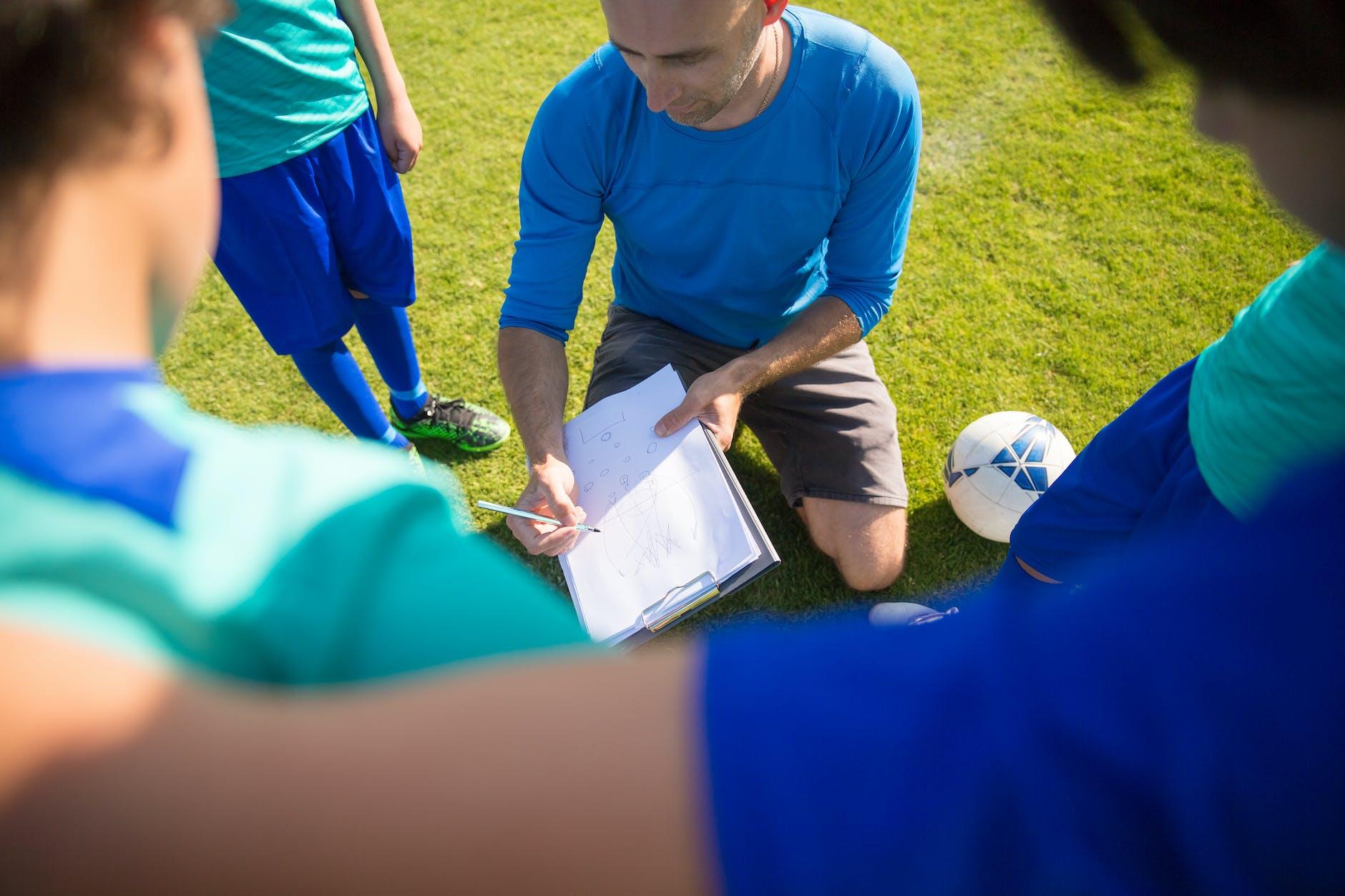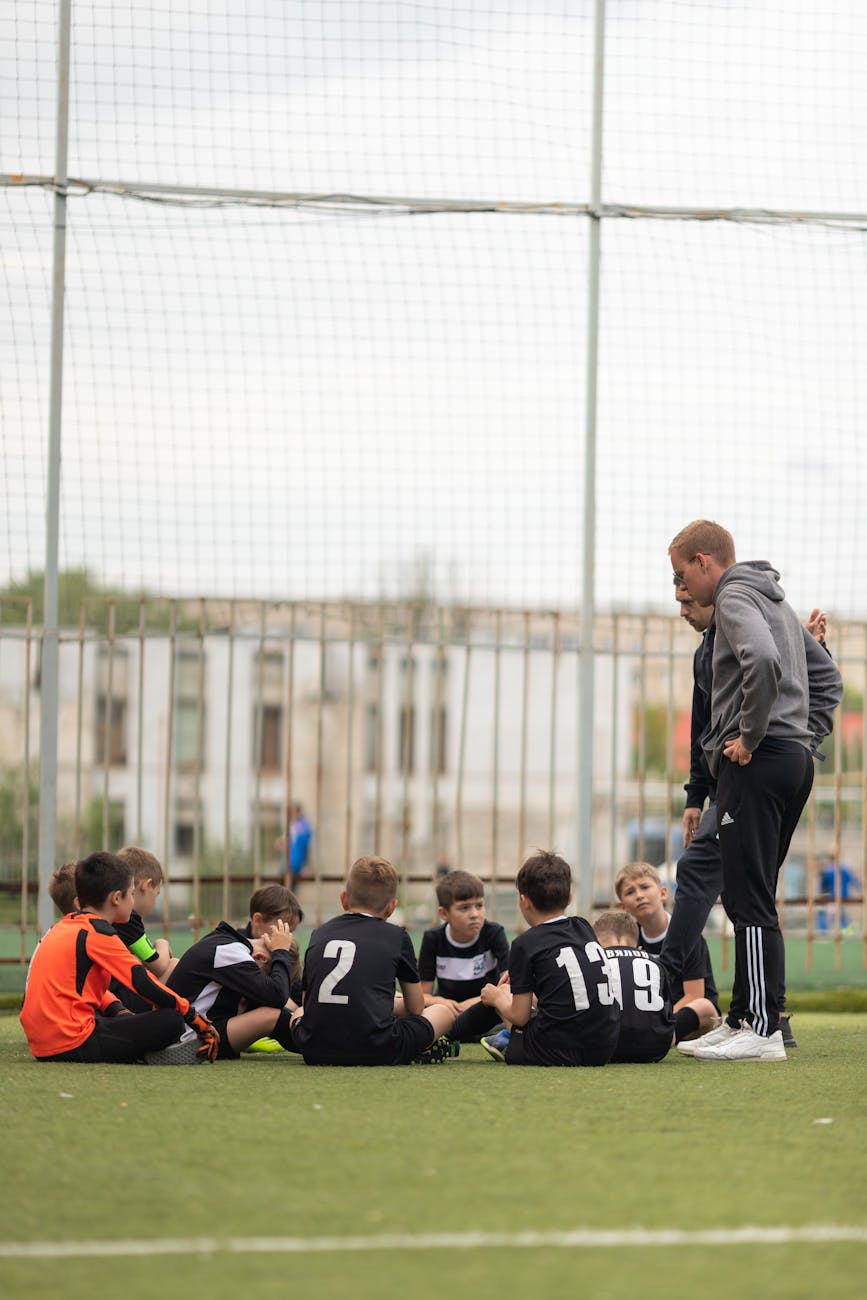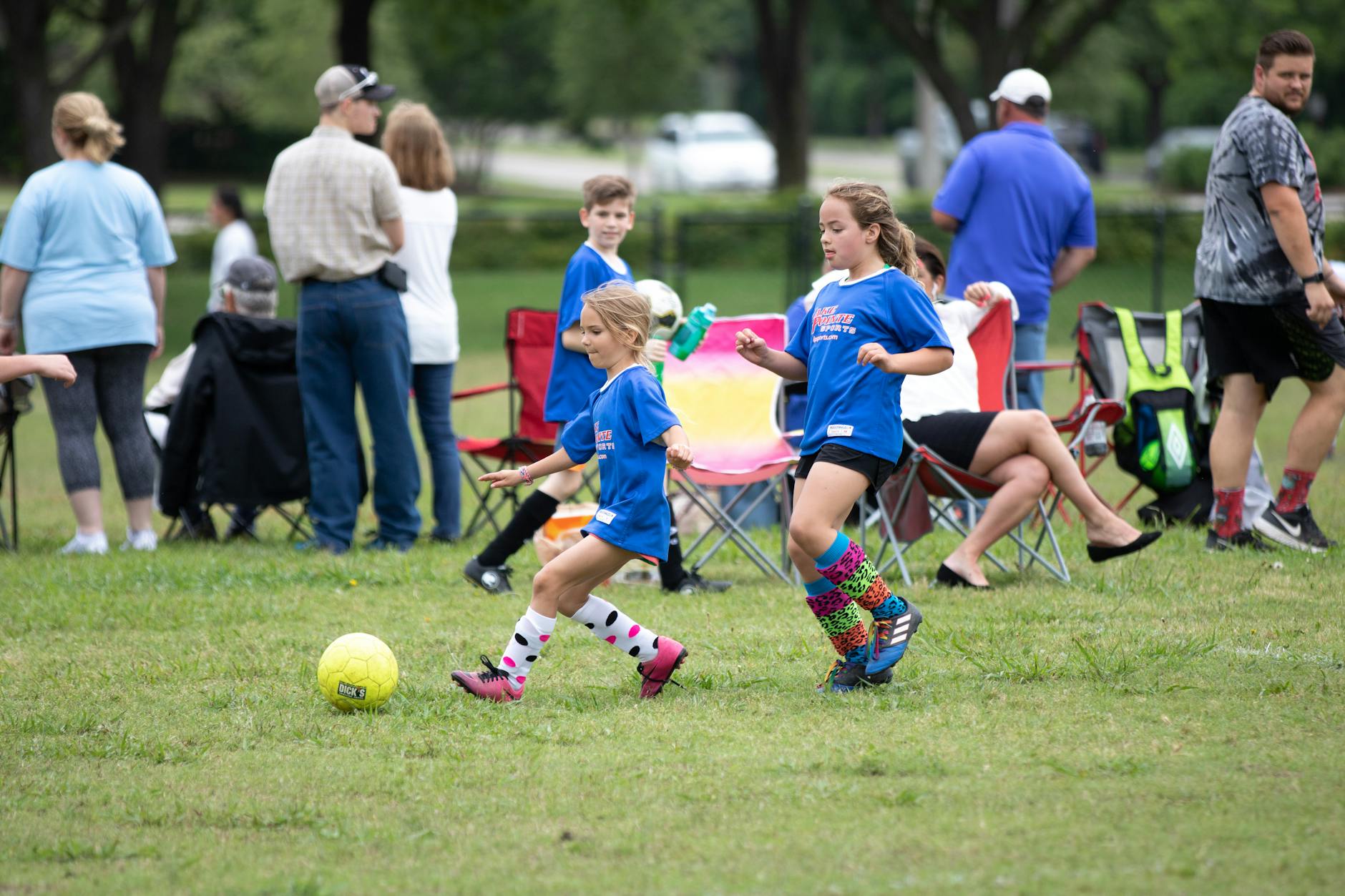Disclosure: Please note that some of the links below area affiliate links and at no additional cost to you I will earn a commission. Know that I only recommend products services and brands I have personally used and stand behind. When you use one of my affiliate links, the company compensates me, which helps me run this blog and keep my in -depth content free of change for readers (like you). Read our disclosure for more info.
Coaching soccer in grassroots helps young soccer players to learn and enjoy football. It’s more than just teaching youth soccer; it’s about player development and helping them grow, work together, and become better people. This article will look at the important parts of good grassroots soccer coaching, like making goals, dealing with problems, and more.
Table of Contents

Elevate Your Coaching Journey
Are you ready to take your coaching career to the next level? Look no further than FootballCoach365, your ultimate destination for top-notch coaching material.
Join the Coach’s Corner today and experience the transformative power of proper planning, training and coaching.
Introduction to Coaching Soccer in Grassroots
Grassroots football coaching is the starting point for young players. It’s not about becoming the next Pep Guardiola or the next Mikel Arteta. It’s where kids first learn the basics of the game, such as passing, receiving, dribbling with the ball, and many more fundamental individual skills. But it’s more than just kicking a ball around. This kind of coaching helps kids fall in love with soccer, making them passionate about the game for a long time.
Except from on-the-pitch skills, Grassroots coaching also teaches important elements like how to work with others, how to stay focused, and how to keep trying even when things get tough.

Setting Goals and Objectives
Setting goals and objectives in grassroots soccer coaching is really important for helping young players get better. These goals have to be made carefully to match the age and skills of the players. For example, younger players might need to work on basic stuff like dribbling and passing, while older ones who know more about the game might want to learn harder tactics and strategies. When a soccer coach make goals that fit the players, every practice session becomes useful and meaningful.
Also, it’s crucial to set goals that players can actually reach. When players can see themselves getting better and reaching their goals, it makes them feel good and keeps them motivated to keep trying hard during practices and games. This not only helps them improve their skills but also makes them feel proud and happy about what they’ve accomplished in soccer.
Structuring Training Sessions for Coaching soccer
Organizing a training session is super important in grassroots soccer coaching because it sets up how players learn and grow. These sessions need to have different parts that suit what players need. First, there should be warm-up exercises to get players ready physically and mentally. These exercises help avoid injuries and get players ready for the session. After warming up, coaches should do skill drills to practice specific moves like dribbling, passing, and shooting. These drills help players improve their skills and understand how to work well in a team. Also, coaches can see what players are good at and what they need to work on, so they can plan better for future sessions.
Besides soccer drills, playing small games and possession games with small numbers is a big part of training sessions. These games let players use the skills they’ve learned in a game-like situation. When teams are smaller, players get more chances with the ball, which keeps them more involved. Small games also help with teamwork, talking with teammates, and making quick decisions, just like in real games. Plus, they’re fast and exciting, so players learn to think and react quickly. Overall, mixing warm-ups, skill drills, and small sided games in training sessions helps players grow in all aspects of grassroots soccer coaching.
DUTCH ACADEMY FOOTBALL COACHING U10-11 – TECHNICAL AND POSITIONAL PRACTICES FROM TOP DUTCH COACHES

Technical and Tactical Practices from Top Dutch Coaches
- The Dutch training methodology for this age group
- The basic principles of Dutch Academy coaching
- The age-specific characteristics
- Training / coaching methods
- Match days
- Training Sessions
- Technical practices (moves and turns)
- Positional games
- Formation specific small sided games
Building a Team Spirit and Cooperation
Encouraging teamwork isn’t just about winning games when coaching soccer. It’s about making a team where everyone feels important and wants to work together towards the same goals. Good coaches know teamwork is more than just passing or scoring goals. It’s about trusting each other, talking well, and caring about one another. Coaches can help by giving chances for players to work together, like doing team activities or solving problems as a group. This makes players feel like they’re all on the same team.
Also, when coaches teach players to respect and help each other, it makes the team stronger. Players learn to celebrate each other’s successes and support each other when things get tough. By giving lots of encouragement and saying positive things, coaches can make teamwork part of how players act both on and off the soccer field.

Inclusive Coaching Practices
In grassroots coaching, being inclusive means using different ways to make sure everyone, no matter how good they are or where they come from, feels like they belong. Coaches have to change how they teach to help each player, whether they’re just starting out or already know a lot. When coaches understand what each player is good at and what they need help with, it helps the whole team feel like they’re part of something and want to do their best.
Being inclusive in grassroots soccer coaching isn’t just about letting everyone play; it’s also about respecting and learning about each other’s differences. Coaches should make sure everyone feels welcome, no matter where they’re from. They can do things like learning about different cultures, talking openly about being different, and stopping any unfair treatment. By making inclusivity a priority, coaches help their teams work well together and teach them to respect and care for each other.
Creating a Positive Learning Environment and ensuring safety and well-being
Making players feel good and supported when they’re learning is really important for helping them get better. When coaching soccer, instead of just caring about winning, it’s better to focus on getting better and improving. Giving helpful feedback helps players keep learning and growing all the time.
Coaches need to always think about keeping players safe and healthy. Following the right rules for health and safety and making sure everyone feels included helps keep players safe, both during games and when they’re not playing.
Balancing Fun and Development
Making youth sports both enjoyable and helpful is a tricky task for coaches. It’s not just about getting better at the game; coaches also have to make their players love playing. When practices are full of laughter and excitement, players not only get better but also become closer to their teammates and coaches. By adding fun stuff to training, coaches can make learning feel easy and fun. Whether it’s having friendly competitions, fun drills, or surprising activities, finding the right mix of fun and improvement is important for making kids love sports.
Adding fun when coaching soccer activities to training can also make players better overall. When players enjoy coming to the practice and feeling motivated, they’re more likely to try new things and get better at the game. Plus, having fun helps them think better, so they remember what they learn and learn new skills faster. So, by making sure that fun and improvement go together, coaches make a positive and supportive environment where young athletes can grow and get better. Finding this balance means that players not only do well in games but also keep loving the game even after they’re done playing youth sports.
Continuous Improvement and Education
Becoming a good football coach is not a simple thing. Coaches who wish to be involved in coaching soccer, need to keep getting better to do well in their job. They know that sports are always changing, with new ways to play and new things to learn. First of all, they must obtain the necessary coaching licenses. After that, they should work hard to keep improving, searching for coaching resources, reading books, watching seminars, attending a grassroots course either on the ground or an online course, and trying out new ideas and getting better at the things they already know. They do things like going to coaching classes, watching videos of games, and talking to other coaches to keep learning. This way, they can help their players in the best possible way.
Also, getting better isn’t just about knowing the game. It’s also about being a good leader and friend to the players. Good coaches understand how important it is to create a positive and helpful atmosphere. They spend time getting to know each player, figuring out what they’re good at and what they need help with. By always trying to learn and adapt, coaches not only make themselves better but also make their teams stronger and more successful.
Conclusion
In summary, grassroots coaching soccer is really important for making players better and improving the sport. Coaches do more than just teach soccer skills. They also help players learn important stuff like how to work hard, keep going when things are tough, and how to be fair and respectful. Their influence goes beyond the soccer field, shaping the attitudes and values of young players as they grow up.
Plus, good grassroots coaching doesn’t just affect players. It spreads out into communities, making people more active, bringing them together, and making competitions fun and fair. With dedicated coaches guiding them, players not only get better at soccer but also become good citizens, showing teamwork, respect, and honesty in everything they do. So, when coaching soccer in grassroots it’s not always about sports; it’s about making a positive impact on people’s lives, preparing them to succeed both in the game and in the real world.

